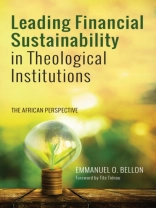The role of theological institutions in Christian mission is likened to the crucible that shapes the hearts and minds of those leading the charge to reconcile the world to God. Nevertheless, it is also the weakest link in the chain of Christian ministry, and efforts to sustain the unique contribution of institutions have been enigmatic. So why should we be concerned about theological institutions? What if there were no theologians, missiologists, trained pastors, or missionaries in Christian ministry? What if there were no theological institutions? What if the existing theological institutions collapsed, shut down for lack of resources? How effective would the witness of the Christian church be without theological institutions in a world in need of God? Over the centuries, various models for supporting theological training have been tried in institutions, but very few of these have been successful. Time, cost, and quality of education (among others) have been the driving forces behind the changing models, and yet financial sustainability has been elusive. Only informed leadership that draws insights from historical, biblical, and practical wisdom is necessary in achieving this goal. This book is your faithful companion in the quest to achieve financial sustainability in theological institutions.
About the author
Emmanuel O. Bellon is a professor of intercultural leadership and director of Vital Sustainability Initiative, a project that supports nineteen theological institutions in Latin America, Africa, the Middle East, Eastern Europe, and Asia to plan for institutional sustainability. He previously served as Vice Chancellor of International Leadership University (formerly NIST) and provided oversight for four institutions in Africa. He is the author of Transforming Leadership through Values-Based Training (2011).












